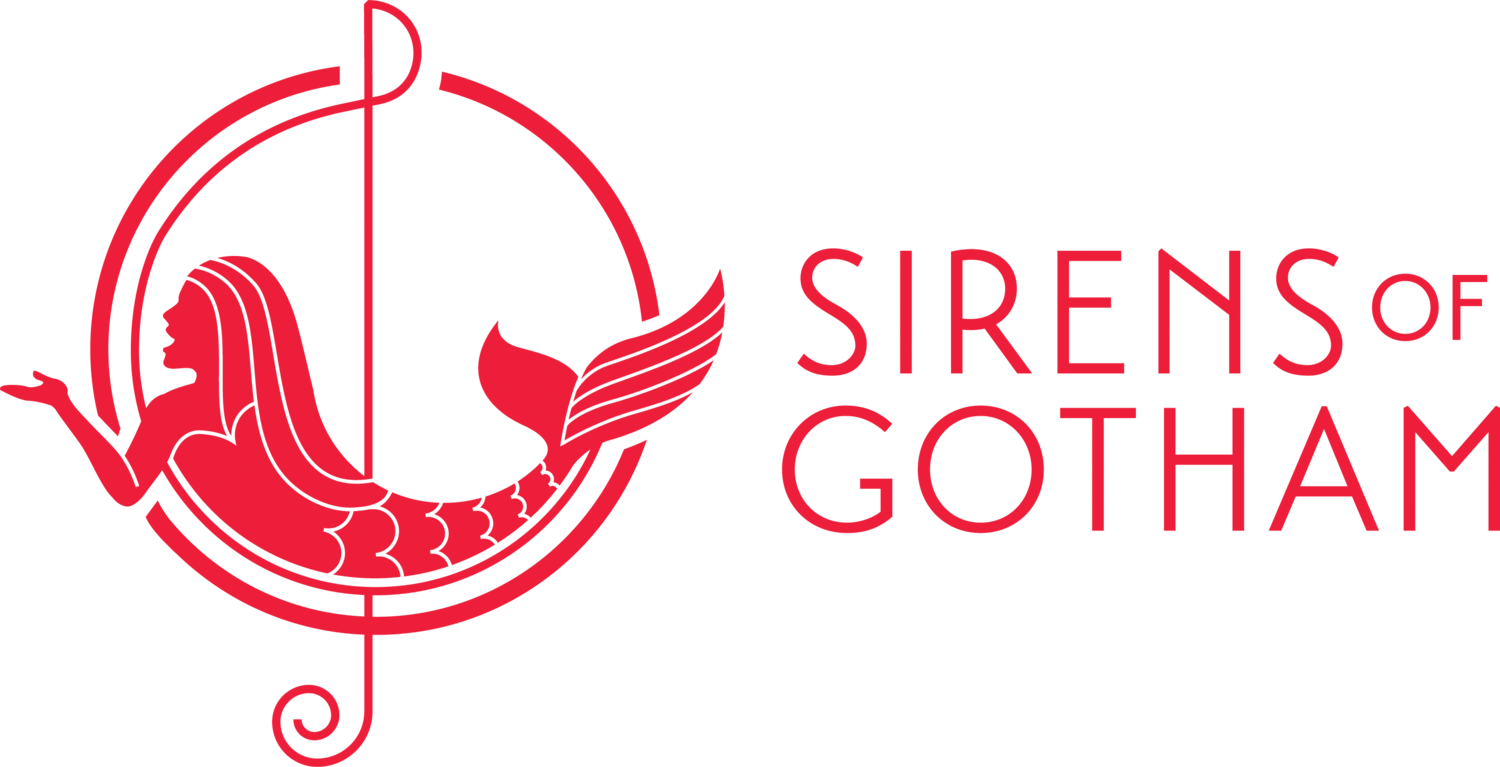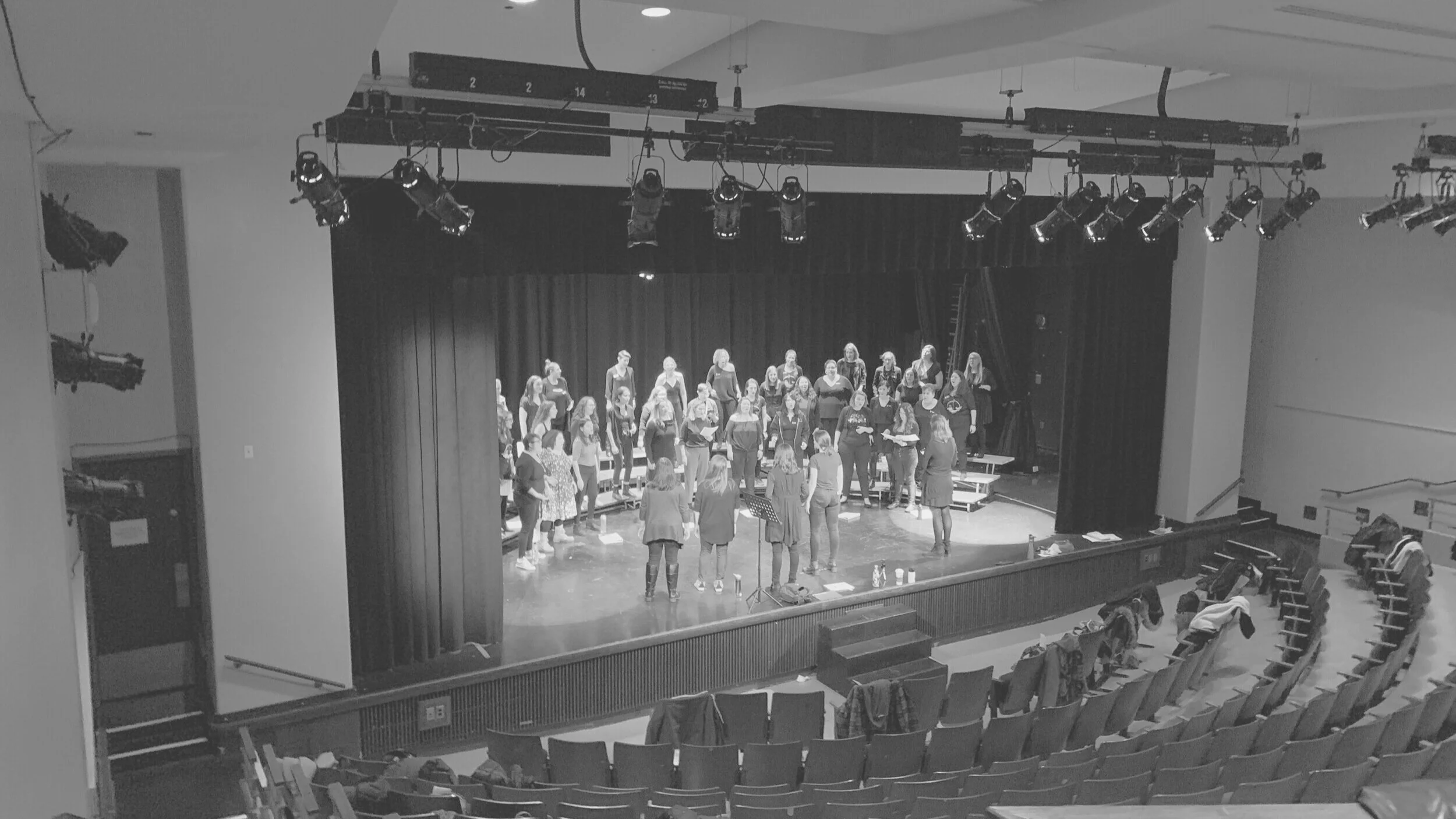Radical Harmony:
A Commitment to Action from Sirens of Gotham
Sirens of Gotham would like to leverage our platform to speak up, particularly to the barbershop community and the leaders of its various organizations.
Racism and bigotry are inherent to the organizational systems and structures of this country. Even more specifically, barbershop music as a genre and a culture has its origins in the appropriation, exploitation, and exclusion of the black community. As such, we have inherited a history of appropriation and discrimination in the music we sing and the organizations we affiliate with. We as artists and as barbershoppers have a responsibility to examine this history and the ways we continue to be complicit in upholding white supremacy in our singing community. It is time to do more than simply acknowledge our past, because it is not as distant as one may think; it is a reality we must confront head on with real change.
It is with this in mind that we submit that harmony is not passive; it relies on and requires action.
If we truly believe in “harmonizing the world” and “keeping the whole world singing,” in “being true to harmony,” then there is work to be done, and it is long overdue. It is not harmony if it only lives in a manufactured bubble of blissful ignorance. Harmony must be an active truth realized by and for all members and humans if we are to benefit from it.
Sirens of Gotham holds dear our core values of joy, ambition, and authenticity, but living those truthfully means doing what’s difficult. We firmly believe that Black Lives Matter, and so we must put that belief into action by confronting prejudice and discrimination in our own organization. To all BIPOC people, especially those who are fellow barbershoppers, we see you, we love you, and we are committed to acknowledging our implicit biases and taking action to dismantle the systemic racism in our community.
To this end, with a shared sense of responsibility and resolve, Sirens of Gotham and Voices of Gotham commit to the following:
1
Initiate and engage in deeper conversations around equity and cultural appropriation in our chorus and the barbershop community.
2
Look critically at implicit bias in our recruitment and audition processes.
3
Analyze how and where our budget is spent in an effort to diversify our contractor base and repertoire selection.
4
Donate our time, actions, and music in outreach to local communities by reinvigorating our volunteer initiative, Gotham Gives.
5
Hold ourselves accountable by publishing publicly the results of the investigations listed above and planned initiatives that result from them.
It is our hope that you take an opportunity to do the same in your organizations and structures. We welcome any dialogue that helps us all move forward in radical harmony.
Let us listen. Let us learn. Let us stand.
Sirens of Gotham
Chapter of Sweet Adelines International
SSAA Chorus in the Hell’s Kitchen Chapter of the Barbershop Harmony Society
Suggested Resources & Further Reading
1
For a better understanding of the characteristics of white supremacy culture and language to describe common barriers to growth, consider reading “The Characteristics of White Supremacy Culture" from Dismantling Racism: A Workbook for Social Change Groups by Kenneth Jones and Tema Okun (ChangeWork, 2001).
2
Consider learning from and engaging with HALO, a quartet who has developed interventional socio-political growth sessions called Race and #RealTalk, described in their words as “using the barbershop singing (and listening) experience as a therapeutic tool by which we confront historic and contemporary issues of race in our country.” Learn more about HALO and this program on their website.
3
A great place to start learning about the origins of barbershop music is this 2015 Harmony University course taught by David Wright. If you prefer to read, THE HARMONIZER published a print version of the session as well. The article also links to further resources for learning about the black roots of barbershop harmony.
4
Explore the history of your affiliated barbershop organization, particularly that of Harmony, Inc., who broke away from Sweet Adelines International (then Sweet Adelines, Inc.) after confronting the leadership about the organizational systems that reduced regional influence and the controversial amendment to the bylaws that restricted membership to white women only. You can read more in Harmony, Inc.’s 40th Anniversary History Book.


